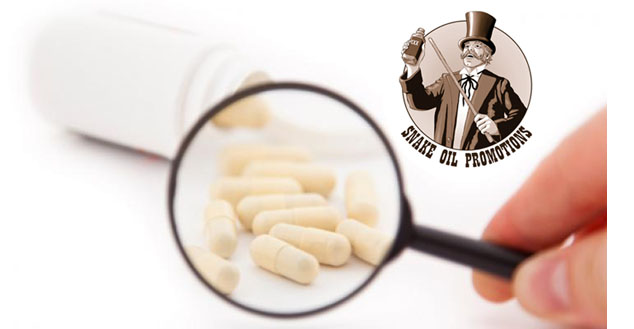 “SHOCKER: YOUR B12 SUPPLEMENT CONTAINS CYANIDE!” Examples of misleading health copywriting like this come across my desk every day. Scare tactics. Factual errors. Red flags galore. False claims. Living on the edge of truth.
“SHOCKER: YOUR B12 SUPPLEMENT CONTAINS CYANIDE!” Examples of misleading health copywriting like this come across my desk every day. Scare tactics. Factual errors. Red flags galore. False claims. Living on the edge of truth.
Federal regulators let most of it slip by. Not your customers, though. Modern supplement buyers are wiser than ever. They can sniff out fact from fiction in advertising. You’re sunk if just one of them spreads the error in your ad.
This makes us all look bad. Copywriters, supplement manufacturers, retailers, health practitioners, experts endorsing the products – we might as well be back in the snake oil business.
Here are a couple of suggestions for avoiding this trap in your marketing materials.
Selling Modern Snake Oil
Regarding the above example, cyanocobalamin does, indeed, release a nitrile (-CN) moiety. Whether it becomes hydrogen cyanide (HCN) is the question. Basically, the amount of -CN released by cyanocobalamin is insignificant. It is certainly a microscopic amount compared with food sources of cyanide – e.g., lima beans, almonds, and spinach come to mind.
In other words, the fear of cyanide in B12 supplements is unfounded.
Accurate information about B12 is freely available from many online sources. An overwhelming amount of it. This goes for all supplement ingredients these days.
Regarding cyanide in cyanocobalamin, a quick online search by your customers will come up with the forum comments at ConsumerLabs.com and a brief article at Gizmodo.
This isn’t junk commentary like they can find at QuackWatch. It is real and it is accurate.
You are simply not going to get away with scare tactics based on factual errors any more.
Back Everything Up with Science
The single most powerful resource that we have for nutraceutical marketing materials is medical research. PubMed alone provides titles, abstracts, and often links to full articles at no charge, from more than 10,000 scientific journals.
Benefiting from this rich array of research studies means that you must be able to: 1) find the right studies that back up every single claim that you make in your marketing materials; and, 2) cite and explain the salient points of each study so that your customer can understand how the research supports your claim.
Taking Advantage of Ignorance?
Ignorance is on the wane. Nearly everyone has access to search engines. Information is widely available on everything. Wise consumers know this and make their buying decisions based on what they perceive as truths in your marketing.
Customers are armed with information more than ever. Taking advantage of ignorance is no longer a useful strategy in marketing.
Scientific Backing a Basic Requirement
Health copywriters must be able to find real scientific research, grasp its meaning, and explain it to a layperson.
Weaving actual science into persuasive writing is the bedrock of health copywriting.
You can still exploit the two most common health-related emotions – fear and hope – without resorting to misleading health copywriting that undermines the veracity of your message.
Plenty of good copywriters can provide actionable copy. Plenty of good scientists can find and explain the key studies that you need to back your supplements.
Your task is to hire one of each, either for your staff or as freelancers. Alternatively, you can find the rare combination of copywriter-scientists like we have at Dr. Dennis Clark & Associates.
It is your choice either way. The bottom line is that you must rely on good copywriting that is based on good science.
Leave a Reply